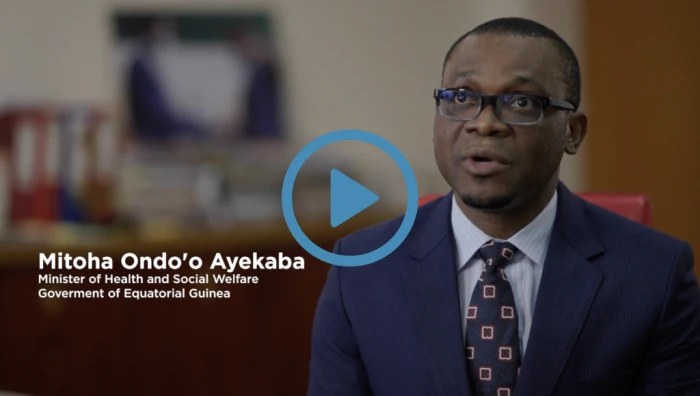Corporate Social Responsibility (CSR)
AMPCO’s corporate social responsibility programs help our communities by providing health care and access to education, and by minimizing impact to the environment. We have been a major supporter of the life-saving Bioko Island Malaria Elimination Project (BIMEP) and the related malaria vaccine trial, contributing approximately US $31 million total since 2004 to eradicate endemic malaria.
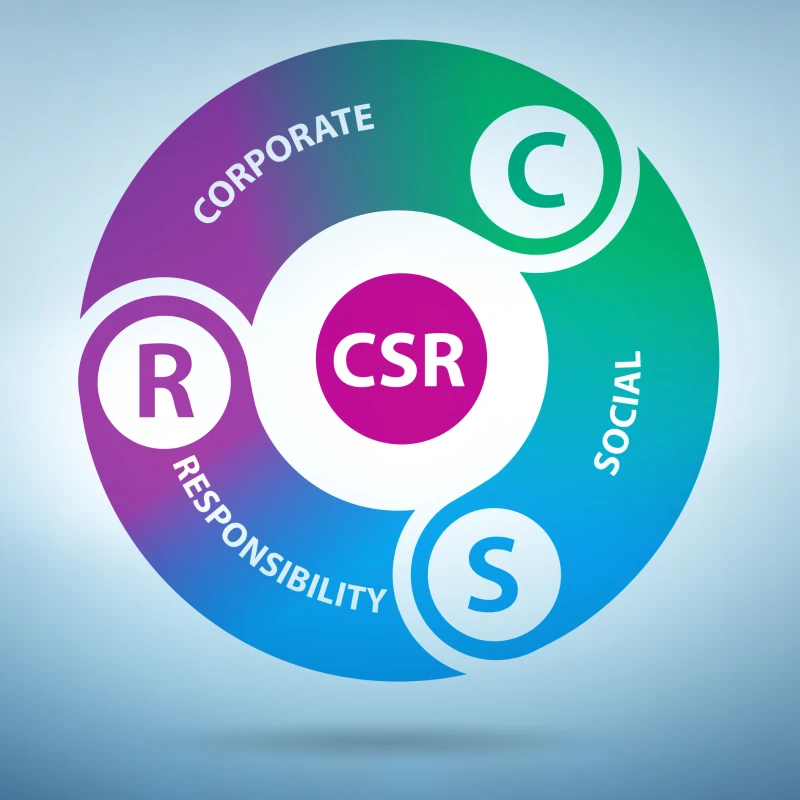 To help our communities, AMPCO carries out CSR programs that directly benefit health care, education and the environment. We have undertaken CSR projects on Bioko Island since 2002 and expanded our efforts to mainland Equatorial Guinea in 2021. Communities ask for help because our projects are effective.
To help our communities, AMPCO carries out CSR programs that directly benefit health care, education and the environment. We have undertaken CSR projects on Bioko Island since 2002 and expanded our efforts to mainland Equatorial Guinea in 2021. Communities ask for help because our projects are effective. - AMPCO has been a major supporter of the highly effective Bioko Island Malaria Elimination Project (BIMEP) since 2004 and the related malaria vaccine trial since 2013, contributing an average of US $3 million annually to these life-saving public health programs. The BIMEP has achieved a 63% reduction in the malaria parasite prevalence (from 45% in 2004 to 16.6% in 2019).
- Marathon Oil Company, Noble Energy EG Ltd (a Chevron Company) and the Government of Equatorial Guinea are also part of the BIMEP public-private partnership that has achieved numerous technical, public health and social successes. The project is implemented by Medical Care Development International (MCDI), a US-based nongovernmental organization (NGO).
- The BIMEP, in collaboration with the Equatoguinean Ministry of Health and Social Welfare, has invested more than US $148 million in this effort since 2004. Of this, US $93 million has been applied to build national capacity with a malaria intervention team.
- The BIMEP won the overall 2019 P3 Impact Award and the Audience Choice Award for being a leading cross-sector collaboration that addresses societal challenges.
- AMPCO invests an additional $500,000 annually in CSR projects individually and in partnership with NGOs such as ONCIGE (La Organización Nacional de Ciegos de Guinea Ecuatorial, which focuses on eye health), San Juan de Dios (mental health), JENAR (Juventud Enseñanza Novedades Actividades, which translates to Youth Teaching Novelties Activities) and Sonrisa (sickle cell anemia).
- In 2021, AMPCO completed our largest individually managed CSR project: donation of Equatorial Guinea's first biomedical incinerator to the Malabo General Hospital. The project mitigates the negative environmental impact of disposing medical waste with conventional waste at a local burn pit. AMPCO’s donation included funding environmental and operational studies, buying incinerator units from Germany and a building from the US, and training hospital staff to segregate waste and operate the incinerator.
- In 2020, AMPCO provided funding to the Ministry of Mines & Hydrocarbons of Equatorial Guinea for COVID-19 supplies such as masks and hand sanitizer.
- Recent projects benefiting education include:
- Building the Basupu playground for children 5-12 years old. A local company built the playground at a total cost of US $294,000.
- Building the Batete school administration building and refurbishing its existing classrooms, teachers’ accommodations and other facilities.
- Environmental projects include drilling and installing water wells, most recently in Minang.
Case studies
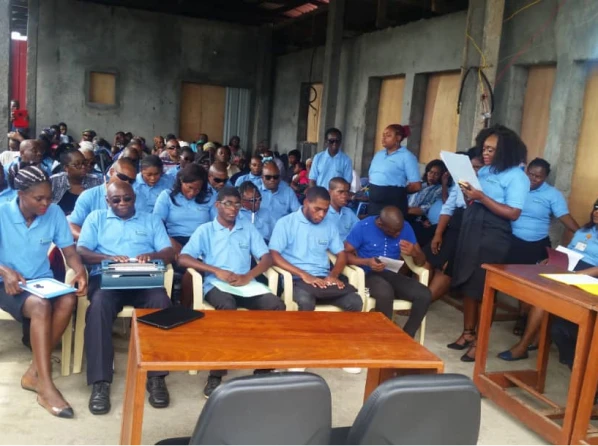
AMPCO & ONCIGE Celebrate Ten Years Working Together
ONCIGE, the National Organization of the Blind of Equatorial Guinea, is a non-profit, non-denominational entity that promotes the social integration and inclusion of the visually impaired, as well as the reduction of blindness through the medical treatment of visual diseases. Atlantic Methanol has been one of ONCIGE’s primary sponsors for over 10 years. Specifically, AMPCO has funded the organization’s office rent, phone, utilities and internet access since June of 2011.
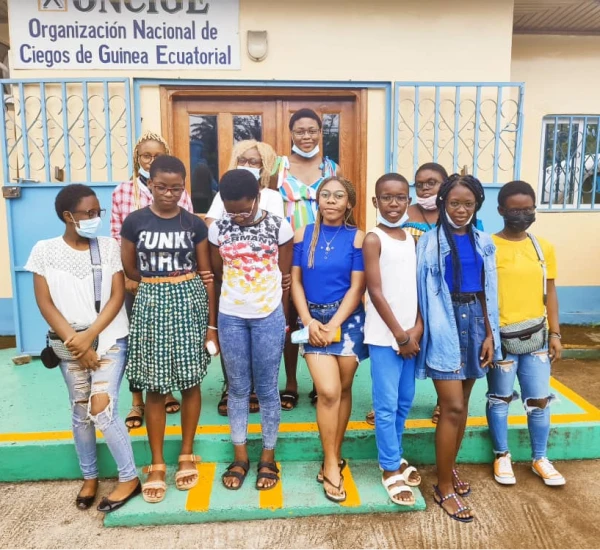
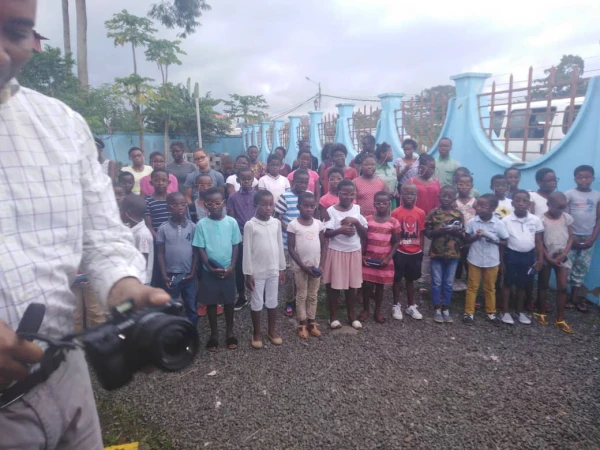
ONCIGE contributes to the reduction of blindness through the treatment of medically treatable visual diseases, through periodic visual health campaigns, and with surgeries for cataracts and other visual conditions in the large cities of the country. It also manages school visual health campaigns for the detection of students with visual disorders, in order to refer them to the corresponding health units.
The organization helps patients with visual pathologies not treatable in Equatorial Guinea secure treatment abroad. ONCIGE is also involved in the management and donation of ophthalmic drugs and optical aids for the rural population or those without resources.
ONCIGE also contributes to the social integration and effective inclusion of the visually impaired through its program “El Bastón Blanco” (The White Walking Stick) for mobility. In other words, people with any degree of blindness can walk alone in Equatorial Guinea, without having to be held by the hand.
ONCIGE facilitates Tiflotechnology Programs (talking computer programs) and Braille, (writing based on tactile points) training, so that students and workers can freely carry their work, education and training. This helps eliminate illiteracy and unemployment of the blind or visually impaired in our country. These programs also promote economic independence, as well as autonomy and personal fulfillment.
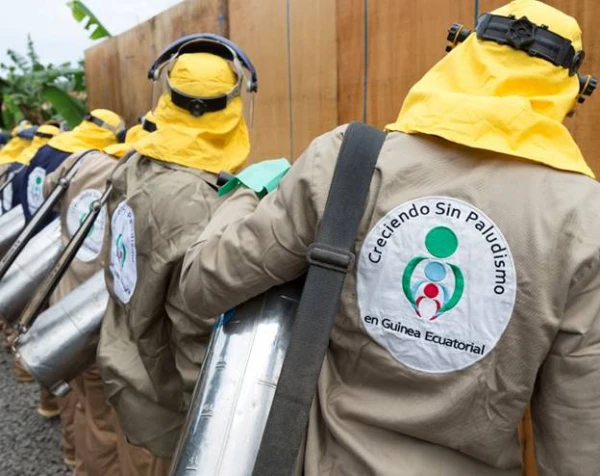
Sprayers in training
Bioko Island Malaria Elimination Project
Intensive malaria control activities began on Bioko Island in 2004, when private operators of oil assets in Equatorial Guinea and the Government of Equatorial Guinea joined forces to fund the Bioko Island Malaria Elimination Project (BIMEP). Atlantic Methanol Production Company (AMPCO), Marathon Oil Corporation, and Noble Energy lead the consortium of private donors, and the project is managed by Medical Care Development International (MCDI), a non-profit organization working with a 40-year history of health work in developing countries.
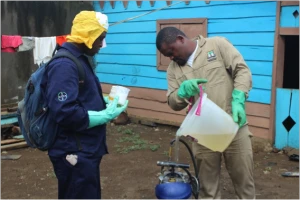
Preparing the pump before spraying
Other partners such as the London School of Hygiene and Tropical Medicine, Liverpool School of Tropical Medicine, Innovative Vector Control Consortium, and Texas A&M University were brought on to provide technical assistance. The BIMEP project works to reduce malaria cases and deaths, especially among children under five, and ultimately aims to eliminate malaria from Bioko Island. To achieve this goal, MCDI and other partners established a comprehensive mosquito control program based on spraying the interior walls of houses at the community level, together with mass distribution of bed nets and antimalarial medicines, promotion of early, effective diagnosis and treatment, epidemiological surveillance, monitoring of mosquito populations, and the training of government health workers.
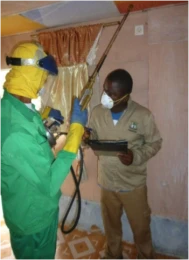
Sprayer in action receiving an evaluation
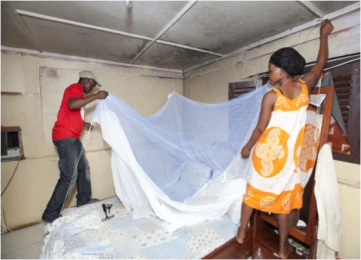
Hanging a bed net
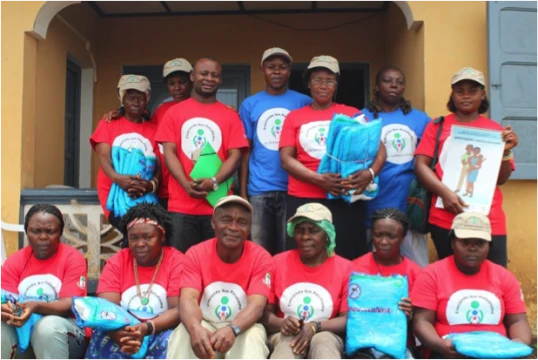
Community leaders receiving training on malaria prevention and control measures
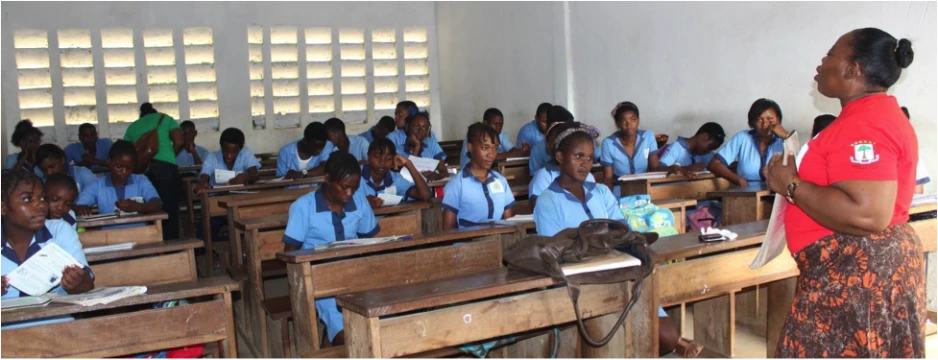
Conducting class on malaria transmission and control at a local school
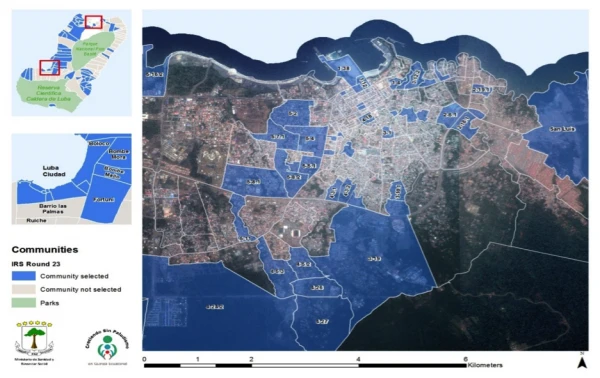
Use of maps to plan and implement
malaria control activities
The BIMEP also engages in communication and social mobilization, rigorous monitoring and evaluation of all project activities with annual surveys and geospatial data to track the impact of its activities implemented on Bioko Island.
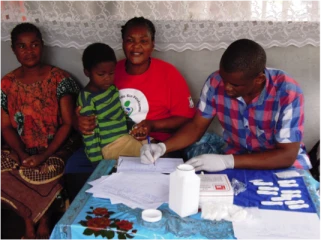
Annual Survey: registration
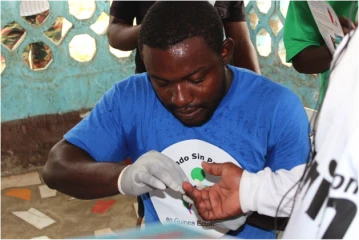
Annual survey: testing for malaria
As a result of its sustained malaria elimination interventions on the island over 14 years, the BIMEP has achieved:
- a 76% reduction in the malaria parasite prevalence (from 45% in 2004 to 10.9% in 2018).
- a reduction in excess of 63% in all-cause mortality among children under 5 years old (largely attributed to malaria interventions).
- a 99% reduction in the rate of transmission of the parasite by the vectors (from more than 1,000 infected bites per person per year in 2004 to less than 10 potentially infected bites per person per year in 2018)
- Elimination of one of the three main malaria vector species (An. funestus)
- 77% reduction in anemia and 68% reduction in parasite prevalence in pregnant women
- Improved access to diagnostic services and malaria treatments
These outcomes have been achieved by designing innovative, science-based approaches that have served as a model for malaria control activities throughout sub-Saharan Africa. For example, the BIMEP’s targeted indoor residual spraying efforts have informed efforts by the US President’s Malaria Initiative throughout Africa.
To accelerate progress towards eliminating malaria on Bioko Island through cutting-edge innovations, a new component called the Equatorial Guinea Malaria Vaccine Initiative (EGMVI) has been added. Along with the Government of Equatorial Guinea, Marathon Oil Corporation, and Noble Energy, Atlantic Methanol and other BIMEP partners have invested U.S. $41 million for five trials of a highly promising, experimental vaccine to block malaria transmission in humans and mosquitos.
Clinical trials of the PfSPZ Vaccine® developed by the U.S. biotechnology company Sanaria, Inc., are currently underway through an international implementation team composed of the Equatoguinean Ministry of Health and Social Welfare, vaccine developer Sanaria Inc., the Ifakara Health Institute of Tanzania, the Swiss Tropical and Public Health Institute, and MCDI.
After the conclusion of clinical field trials, the BIMEP aims to implement a mass vaccination campaign in tandem with current malaria control activities, in order to demonstrate that it is possible to eliminate malaria on Bioko Island.
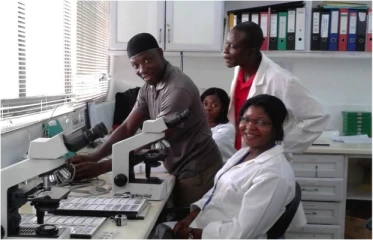
Lab technicians
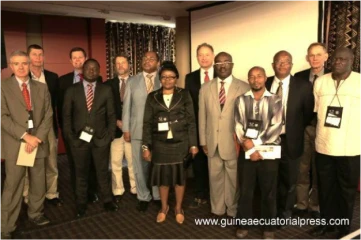
Members of the BIMEP and partners at international malaria conference
BIMEP Awarded 2019 P3 Impact & Audience Choice Awards at Concordia Summit
The P3 Impact Award is presented each year at the Concordia Summit in New York, NY, to recognize and honor leading public-private partnerships (P3s) that improve communities and the world. We are proud to report that the Bioko Island Malaria Elimination Project (BIMEP) was the winner selected from among five finalists for a 2019 P3 Impact Award. The award was created by nonprofit Concordia, the University of Virginia’s Darden School Institute for Business and Society, and the U.S Department of State’s Office of Global Partnerships. For more information: https://www.concordia.net/organization/bioko-island-malaria-elimination-program/
Atlantic Methanol is proud to have celebrated 20 years supporting the Bioko Island Malaria Elimination Project in Equatorial Guinea
Full article here: https://mcd.org/news/celebrating-20-years-partnership-bioko-island-malaria-elimination-project
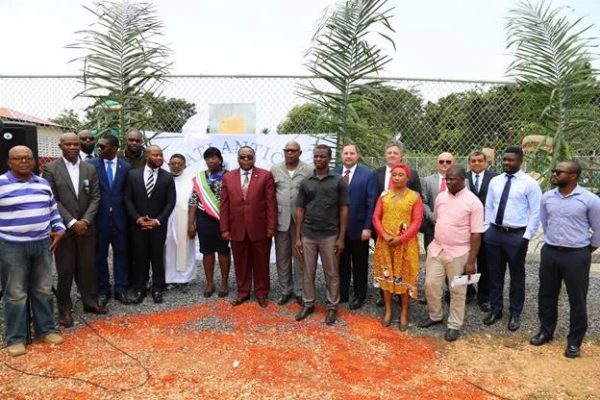
Playgrounds
Playgrounds have been donated at several locations around the city of Malabo. The "Pirate Playground" erected at the Maria Auxiliadora School in the Ela Nguema neighborhood or the Basupu playground inaugurated in 2019 help provide the children of Equatorial Guinea with safe places for recreation.

Health Centers
Cupapa, Baney District
The village of Cupapa is located in the Northeast of Bioko Island and is at a distance of 17 Km from Malabo. The health center’s construction work was carried out by Promagro for AMPCO and it includes a reception area, a pharmacy, a doctor's consultation room, a maternity delivery room and two restrooms to serve the local village.
Ncolanvam, Cogo District
Ncolanvam is located in the Cogo district on the mainland of Equatorial Guinea. The health center is a story building that houses a medical consultation room, pharmacy, warehouse, restrooms, maternity delivery room and wards; the top floor of the building is the doctor's residence.
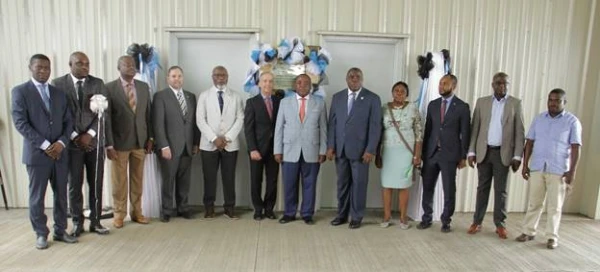
Biomedical Incinerator at Malabo General Hospital
On August 5th, 2019, Atlantic Methanol delivered the largest CSR Projects it has ever undertaken in-house: a biomedical waste incinerator for the Malabo General Hospital.
The project was conceived to address the negative environmental impact of medical waste that was being disposed of along with conventional waste at a local city burn pit. Following a series of detailed feasibility and environmental studies, and after obtaining approvals from the Ministry of Health and the Ministry of Mines & Hydrocarbons, an AMPCO team from numerous different departments successfully managed procurement, planning and execution of the project.
Water Well Projects
Atlantic Methanol's CSR investments during 2023 continued supporting local communities across Equatorial Guinea. Water well projects were inaugurated on June 10th, 2023, at Bococo-Drumen (Bioko Sur Province), and on July 11th, 2023, in Evinayong (Centro Sur Province). Both projects were entirely financed by AMPCO to facilitate potable water access for the population on both Bioko Island and Equatorial Guinea’s Continental Region.
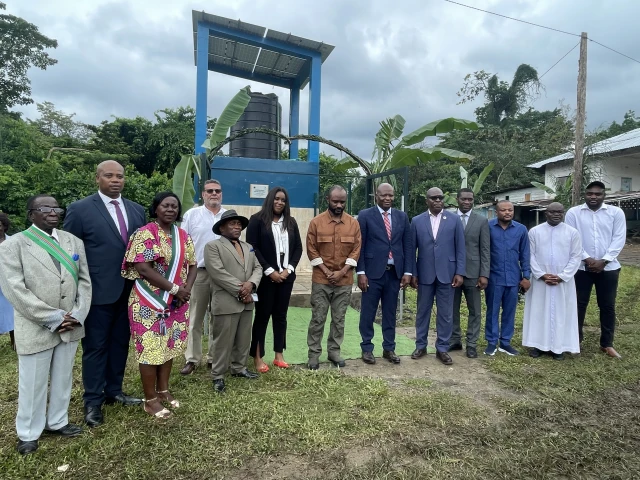
Bococo Drumen Water Well Inauguration - Junio 2023
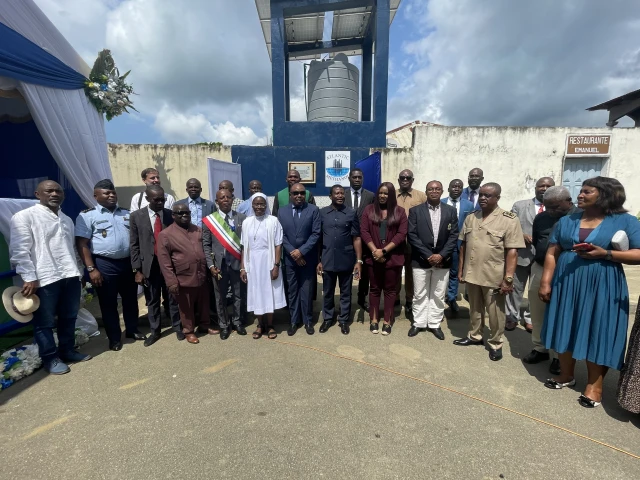
Evinayong Water Well Inauguration - July 2023

